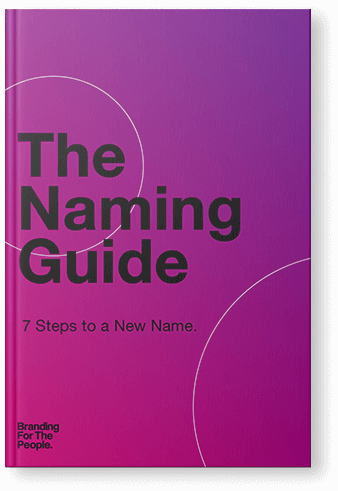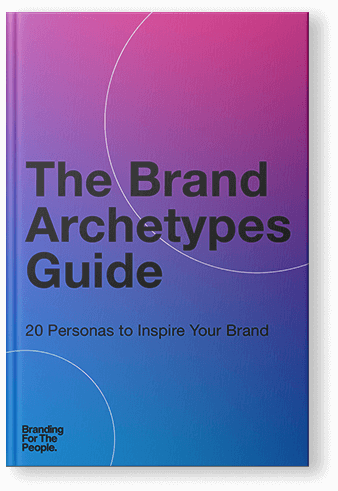It’s important to remember that hiring is a two-way process. It’s not just your company that hires a branding agency; the branding agency must be interested in working with you as well. Ensuring that there is a good fit between the two entities is vital to make sure you are in alignment in terms of process, values, and overall objectives. If you’re interested in working with a branding agency, one of the first things you can do to set yourself apart is getting familiar with creating a Request for Proposal. Commonly shortened to RFP, the Request for Proposal is precisely that—reaching out to a select list of agencies with your info, budget, needs, etc. and encouraging them to bid on your project.
While everyone should be aware of what is a Request For Proposal is and how to craft one (more on that later), this is especially important for brands that need a high degree of customization. You’ll be able to save time, money, and effort by submitting a Request For Proposal. If you’ve taken the time to put one together, it indicates to the agency you’ve thought your project through. You’re serious and not just a casual shopper. It shows you’ve identified something specific or discrete for a branding agency to bid on and aren’t interested in wasting anyone’s time.
If this sounds like you, we’ve broken down some guidelines into five key things to include in a stellar RFP.
All your basic contact info.
Step one? Make sure you’re as specific as possible about how to communicate with you or an appropriate representative. Make sure you include the contact person’s title, including email, phone, and address, and be sure to note which is the best way to reach you.
You’ll want to include your company’s name, but be sure also to include the brand for which you’re seeking the proposal. For example, there’s a big difference between “working with Apple” and “working with the iPhone,” and you will want to keep it as clear and specific as possible.
The business of your business.
Any agency will want to know your background before starting to work with you, so tell them upfront. Talk about your company history, how long you’ve been in business, and what products or services you offer. Make sure you clearly outline what sets you apart from your competitors (even if you’re not entirely confident or not sure how to describe it). Knowing what differentiates you gives a context for the agency.
In this category, you’ll want to include information about what stage your business is at. Are you a startup, are you looking to scale, or are you already a leader in your industry? What is your current revenue, and are you looking to scale (and by how much)? Your branding needs are often dictated by where or what stage you are in your business, and the more detail you can provide, the better.
Your definition of success.
Success means different things to different people, and letting the agency know your metric right from the start in the RFP helps an agency decide whether to bid and ultimately craft the best proposal. You’ll want to provide a clear picture of what you want this project to do. Describe not just the project, but also the scope of work and goals.
When considering an agency, you can break down their services into three categories:
What are the 100% non-negotiable essentials (for example, in-house web development)? After that, take a look at nice to haves, which are useful services you could use collaboratively. For instance, many companies want an agency that will handle the look and feel of the design. For any number of reasons, they might want to use their own resources. And finally, optional things—those that are a bonus but not essential to your goals. This might include a company that has its own copywriter but might use input on strategy.
Your selection criteria.
You want to make it clear to the agency in the RFP what criteria you’ll be using to evaluate the proposals you receive. This also helps give the sense that you’ve considered the project start to finish. It doesn’t have to be exhaustive, but 3-5 criteria goes a long way. Criteria can be as individual as your company, but common examples include past work, the agency’s track record with similar companies or with diverse industries, their location/proximity, if they have a diverse team, the level to which they can expect senior executive involvement, their size, reach, expertise, if they’re a specialty or boutique agency, where their strengths are (say, strategy vs. creative), industry awards, and financial factors like flexible payment options.
The project’s timeline.
The agency needs to know if they have the resources available to meet your deadlines. You’ll need to make clear when proposals are due to allow them to submit on time. Agencies like to know when they can expect a decision. And of course, when the project kicks off, and when the brand must launch.
A decision-making process.
It’s helpful to provide the manner your company makes decisions. If you are a very small company, an individual, or a startup, it’s probably just you or you and a couple of others. Even in smaller companies, decisions may be made by committee. And in some cases, while you’ll have one point of contact, decisions are subject to board approval.
Your budget or budget range.
And last but not least, the money. You want to be clear what your budget is and if it’s a hard number or if there’s a degree of flexibility. If you’ve researched the agency, you should have a pretty good idea of what their services cost. This means you shouldn’t be shooting so far out of your price range that it jeopardizes the partnership or really that there are any surprises.
There are lots of other things you could include in the RFP, but we consider these the essentials. In going through this process, you’ll likely have a much better idea of which agency is a good fit for you and your needs. And the agency will have everything it needs to pass back a proposal.







